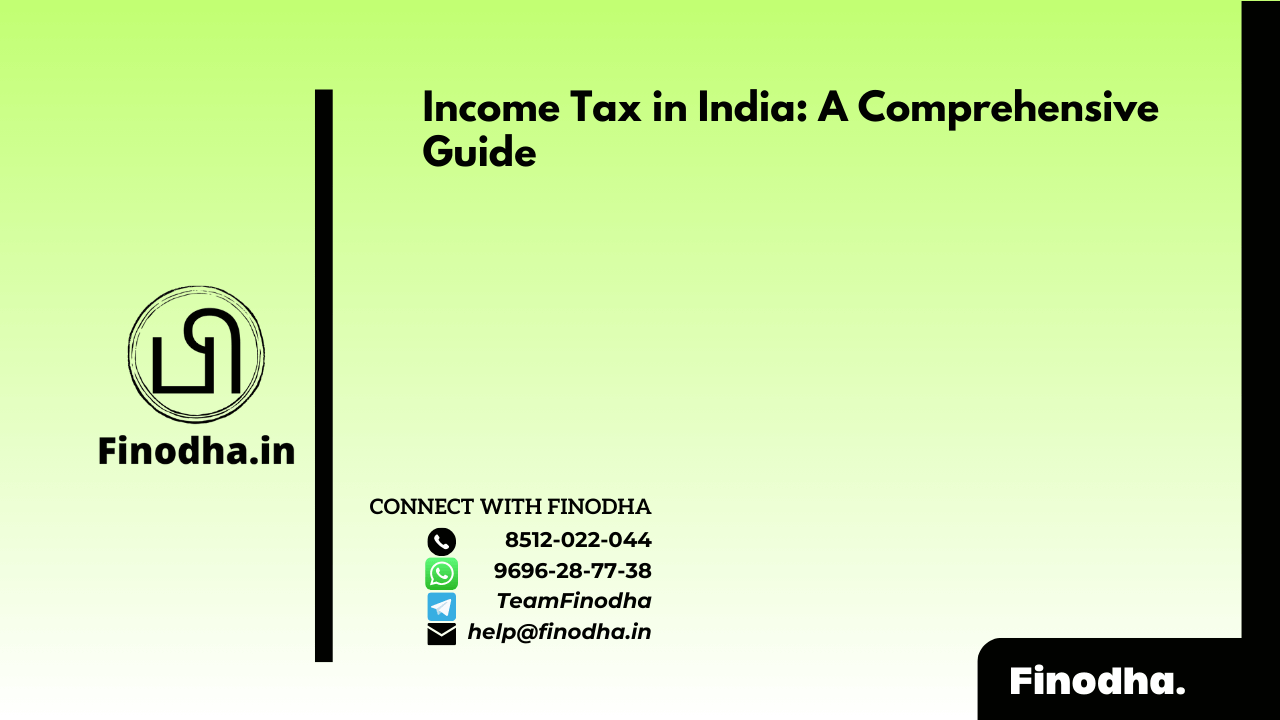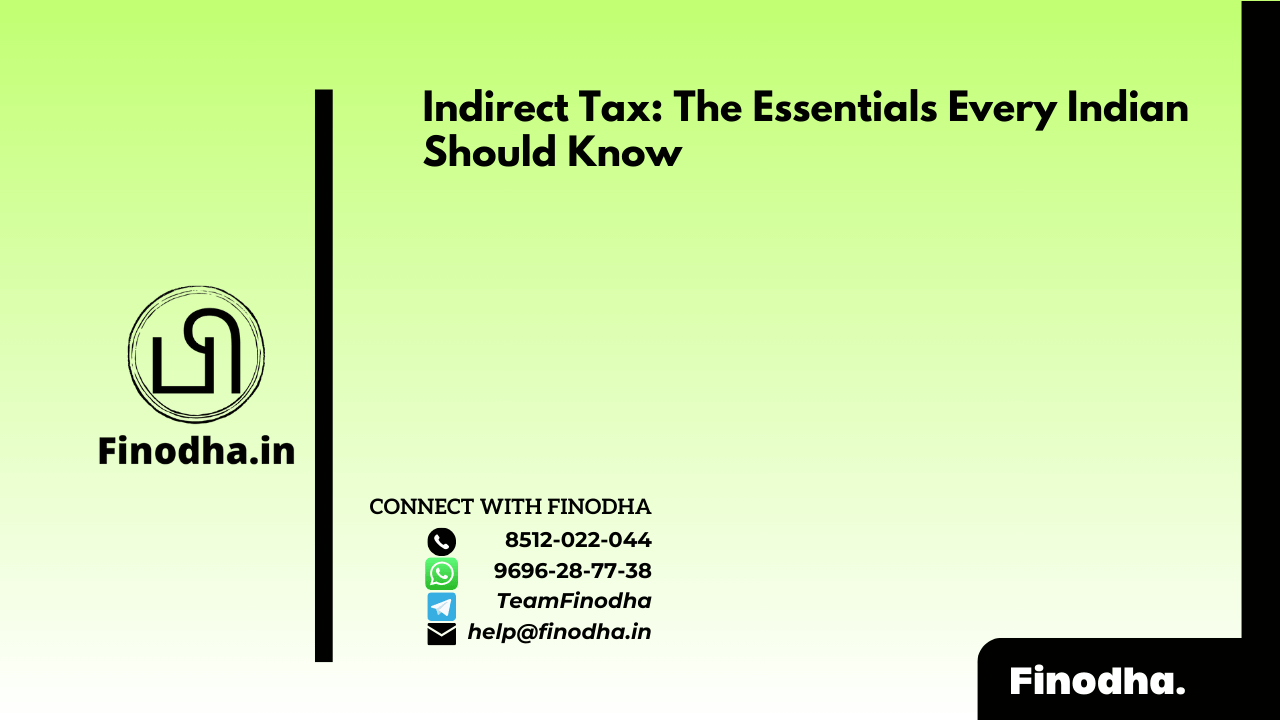Important Keyword: Business Income, Capital Gains, Equity Trading, Income Tax Rates, ITR-2, Tax Audit.
Table of Contents
Income Tax on Equity Share Trading
Trading in equity shares and stocks has witnessed a remarkable surge in accessibility, thanks to the proliferation of online trading platforms. This convenience has empowered individuals to engage in equity trading, encompassing a spectrum of financial instruments like delivery stocks, intraday trades, futures, options, and more. However, it’s imperative to fulfill tax obligations by filing Income Tax Returns (ITR) and settling taxes on such earnings. Equity share trading typically manifests in two primary forms: Equity Delivery Trading and Equity Intraday Trading.
What is Equity Trading?
Equity Delivery Trading
When a trader engages in Equity Delivery Trading, they purchase equity shares from the stock market with the intention of holding onto them for more than a day. The term “delivery” denotes the transfer of ownership of shares to the buyer’s Demat account. The primary objective here is to capitalize on potential short or long-term capital gains. Income generated from Equity Delivery Trading is categorized as either Capital Gains or Non-Speculative Business Income.
Moreover, when an investor subscribes to an IPO (Initial Public Offering) and receives shares, any income generated from selling these shares is treated as capital gains for tax purposes.
Equity Intraday Trading
Equity Intraday Trading involves the purchase and sale of equity shares within the same trading day. The aim is to capitalize on price fluctuations and generate profits swiftly. Unlike Equity Delivery Trading, there is no transfer of ownership of shares in Equity Intraday Trading, as trades are executed on the same day.
For tax purposes, Income Tax treats Equity Intraday Trading as Speculative Business Income. This is because it involves trading without the actual delivery of shares and with the objective of making rapid profits. Consequently, traders engaged in intraday trading are required to pay taxes at slab rates.
Equity F&O Trading
Equity Futures and Options (F&O) Trading involves buying or selling futures contracts or options contracts based on an underlying asset, such as equity shares. Income generated from equity F&O trading is categorized as non-speculative business income for income tax purposes.
Unlike speculative income, which is associated with activities like intraday trading, non-speculative business income is derived from trading activities where contracts are held for longer durations and involve predetermined terms. Therefore, income from equity F&O trading is taxed differently from speculative income, and traders are subject to specific tax regulations governing non-speculative business income.
How to treat sale of shares as Capital Gains or Business Income?
The classification of income from the sale of equity shares and mutual funds as either Capital Gains or Business Income hinges on several key factors. These factors are essential in determining the tax treatment of such income and have been subject to interpretation and debate between traders and tax authorities.
- Significant Trading Activity: The level of trading activity conducted by the taxpayer is a crucial factor. If the trader engages in substantial and regular trading of shares, securities, or derivatives like futures and options, the income derived from these activities is typically classified as Business Income. Conversely, if the volume of trading transactions is low, irregular, and not a primary activity, the income is usually treated as Capital Gains.
- Intention of the Taxpayer: The taxpayer’s intention behind the transactions also plays a vital role. If the primary objective is to actively trade shares and securities for short-term gains, the income is considered Business Income. Conversely, if the taxpayer’s intention is to hold investments for long-term appreciation, earning dividends and interest, the income is categorized as Capital Gains.
These factors collectively guide the tax authorities in determining the appropriate classification of income from equity trading. It’s essential for traders to understand these distinctions to ensure compliance with tax regulations and accurately report their income.
Clarification from CBDT Circular
To streamline tax procedures and minimize disputes, the CBDT has proposed a structured approach regarding the classification of income from shares and securities:
- Listed Shares and Securities:
- Taxpayers have the flexibility to choose whether to report income as Capital Gains or Business Income for listed shares and securities.
- If the taxpayer treats listed shares and securities as stock-in-trade, regardless of the holding period, the income will be categorized as Business Income.
- If the taxpayer considers listed shares and securities held for over 12 months as investments, the income will be treated as Capital Gains. Continuity in this method is required in subsequent years unless there’s a significant change in circumstances.
- Unlisted Shares and Securities:
- Income from unlisted shares and securities should uniformly be treated as capital gains, irrespective of the holding period.
- Other Cases:
- For all other scenarios, including listed shares and securities not falling under the above categories, the determination of income head will be based on significant trading activity and the taxpayer’s intention regarding holding them as stock or investment.
This structured approach aims to provide clarity and consistency in the treatment of income from shares and securities, thereby reducing ambiguity and potential litigations.
CBDT Guidelines for Assessing Officers
Determining whether income from the sale of shares should be classified as Capital Gains or Business Income involves considering various factors:
- Nature of Activity:
- Whether the purchase or sale of securities is linked to the taxpayer’s usual trade or business, or if it’s an occasional independent activity.
- Intention of Purchase:
- Whether the purchase of shares is for resale at a profit or for long-term appreciation and earning interest/dividends.
- Volume and Frequency:
- The significance of the volume of transactions in the financial year and whether there were continuous and regular trading activities.
- Holding Period:
- The duration for which shares and securities are held by the taxpayer.
- Impact on Livelihood:
- The time devoted to trading and its impact on the taxpayer’s livelihood.
Regarding the treatment of income, taxpayers can maintain two portfolios:
- An investment portfolio comprising securities treated as capital assets.
- A trading portfolio comprising securities treated as trading assets.
Income under both Capital Gains and Business Income heads can be possible in such cases. However, taxpayers must maintain clear records to distinguish between shares held for investment and those held as stock in trade.
For Equity Share Trading, the income is classified as Capital Gains in the following manner:
- Long-Term Capital Gain (LTCG) under section 112A for listed securities held for over 12 months.
- Short-Term Capital Gain (STCG) under section 111A for listed securities held for up to 12 months.
By adhering to these guidelines and accurately documenting transactions, taxpayers can ensure proper classification of income from equity share trading.
Equity Trading as Non-Speculative Business Income
In cases where a trader engages in significant trading activity and derives trading income as their sole source of earnings, the resulting profit or loss is categorized as Non-Speculative Business Income. Under this classification, the trader is eligible to claim expenses incurred in generating this business income. Consequently, the trader must file their income tax return using Form ITR-3. This form is specifically designed to accommodate individuals or Hindu Undivided Families (HUFs) with income from business or profession, ensuring accurate reporting and compliance with tax regulations.
Income Tax on Equity Share Trading
The taxation rates on trading in equity shares vary depending on how the income is classified. When the income from trading is categorized as Non-Speculative Business Income, it is subject to taxation at the applicable income tax slab rates. However, if the income is treated as Capital Gains Income, the following tax rates apply:
- Long-Term Capital Gains (LTCG) under Section 112A:
- For listed securities held for more than 12 months: LTCG exceeding INR 1,00,000 is taxed at a rate of 10%.
- Short-Term Capital Gains (STCG) under Section 111A:
- For listed securities held for up to 12 months: STCG is taxed at a rate of 15%.
It’s essential for traders to accurately determine the nature of their income and apply the corresponding tax rates to ensure compliance with tax laws and regulations.
Income Tax on Equity treated as Capital Gains Income
| Type of Security | Period of Holding | Long Term Capital Gain (LTCG) | Short Term Capital Gain (STCG) | |
| Domestic Company | Listed Equity Share (STT paid) | 12 months | 10% in excess of Rs. 1,00,000 under Section 112A | 15% under Section 111A |
| Listed Equity Share (STT not paid) | 12 months | 10% without Indexation | Slab Rates | |
| Unlisted Equity Share (STT not paid) | 24 months | 20% with Indexation | Slab Rates | |
| Foreign Company | Listed Equity Share | 24 months | 10% without Indexation | Slab Rates |
| Unlisted Equity Share | 24 months | 20% with Indexation | Slab Rates |
Income Tax on Equity treated as Non-Speculative Business Income
Non-Speculative Business Income is taxable at slab rates.
Slab Rates if Equity Trader opts for Old Tax Regime
| Taxable Income (INR) | Slab Rate |
| Up to 2,50,000 | NIL |
| 2,50,001 to 5,00,000 | 5% |
| 5,00,001 to 10,00,000 | 20% |
| More than 10,00,000 | 30% |
Certainly, it’s important to consider the additional surcharge and cess while calculating the total tax liability. Here’s how it works:
- Surcharge: Surcharge is applicable on the total income as per the prescribed surcharge slab rates. These rates vary depending on the level of income.
- Health and Education Cess: Additionally, the Health and Education cess is levied at a rate of 4% on the total tax amount, including the basic tax and surcharge.
By factoring in both the surcharge and the Health and Education cess, taxpayers can accurately determine their total tax liability on trading income from equity shares.
Slab Rates if Equity Trader opts for New Tax Regime
| Taxable Income (INR) | Slab Rate |
| Up to 2,50,000 | NIL |
| 2,50,001 to 5,00,000 | 5% |
| 5,00,001 to 7,50,000 | 10% |
| 7,50,001 to 10,00,000 | 15% |
| 10,00,001 to 12,50,000 | 20% |
| 12,50,001 to 15,00,000 | 25% |
| More than 15,00,000 | 30% |
Turnover Calculation for Equity Trading
Correct, turnover is a crucial factor in determining the applicability of tax audit, especially when equity trading is treated as a business income. Here’s how turnover is calculated:
For Equity Delivery Trading, turnover is calculated as the absolute profit. This means summing up the positive and negative differences resulting from trading activities. Turnover calculation can be done either through a scrip-wise method or a trade-wise method, depending on the preference and ease of calculation for the trader.
Tax Audit for Equity Trading
Understandably, determining when a tax audit is necessary can be complex, especially for equity delivery trading treated as business income. Here’s a breakdown of the conditions:
- Trading Turnover up to INR 2 Cr:
- Tax audit is applicable if:
- The taxpayer incurs a loss or the profit is less than 6% of the trading turnover, and
- The total income exceeds the basic exemption limit.
- If the profit is equal to or more than 6% of the trading turnover, tax audit is not required.
- Tax audit is applicable if:
- Trading Turnover of more than INR 2 Cr and up to INR 10 Cr:
- Tax audit is applicable if:
- The taxpayer incurs a loss or the profit is less than 6% of the trading turnover, or
- The profit is equal to or more than 6% of the trading turnover, and the taxpayer has not opted for the Presumptive Taxation Scheme under Section 44AD.
- Tax audit is not applicable if:
- The profit is equal to or more than 6% of the trading turnover, and the taxpayer has opted for the Presumptive Taxation Scheme under Section 44AD.
- Tax audit is applicable if:
- Trading Turnover of more than INR 10 Cr:
- Tax audit is mandatorily applicable if the turnover of intraday trading exceeds INR 10 Cr.
These guidelines aim to ensure compliance with tax regulations while providing clarity to traders on when a tax audit is necessary.
ITR Form, Due Date, and Tax Audit Applicability for Equity Traders
| ITR Form | ITR-2 if the trading is treated as Capital Gains. ITR-3 if the trading is treated as Business Income. |
| Due Date | 31st July if Tax audit is not applicable 31st October if Tax audit is applicable |
| Tax Audit | If trading is treated as business income then trader have to verify the audit applicability |
Advance Tax for Equity Share Trading
Here’s how the Advance Tax payment schedule works for equity traders who don’t opt for presumptive taxation:
Advance Tax Payment Schedule for Equity Traders (Non-Presumptive Taxation):
- 15% of Estimated Tax by 15th June: Estimate your total tax liability for the financial year and pay 15% of it by 15th June.
- 45% of Estimated Tax by 15th September: By 15th September, pay 45% of your estimated tax liability for the year.
- 75% of Estimated Tax by 15th December: Pay 75% of your estimated tax liability by 15th December.
- 100% of Estimated Tax by 15th March: Finally, pay the remaining 100% of your estimated tax liability by 15th March of the financial year.
These installments help ensure that taxpayers meet their tax obligations progressively throughout the year, rather than facing a large tax bill at the end. It’s important for equity traders to estimate their tax liability accurately and make timely payments to avoid penalties and interest charges.
| Advance Tax Liability | Due Date |
| 15% of Tax Liability | On or before 15th June |
| 45% of Tax Liability | On or before 15th September |
| 75% of Tax Liability | On or before 15th December |
| 100% of Tax Liability | On or before 15th March |
For equity traders who opt for presumptive taxation under Section 44AD and have profits, the Advance Tax payment differs from those who don’t opt for this scheme. Here’s how it works:
Advance Tax Payment for Equity Traders (Presumptive Taxation):
- Single Installment by 15th March: The entire amount of Advance Tax must be paid in a single installment on or before 15th March of the financial year.
Under the presumptive taxation scheme, traders are not required to make quarterly installments. Instead, they pay the entire Advance Tax amount at once by the specified date. This simplifies the tax payment process for eligible traders, allowing them to fulfill their tax obligations efficiently.
Carry Forward Losses for Equity Trading
Under the tax treatment of equity trading as capital gains, different rules apply depending on whether the gains or losses are short-term or long-term. Here’s a summary:
Short-Term Capital Losses:
- Can be set off against both short-term and long-term gains in the current financial year.
- If any loss remains after set off, it can be carried forward for up to 8 years.
- Such carried forward losses can be adjusted against any capital gains in the subsequent years, regardless of whether they are short-term or long-term.
Long-Term Capital Losses:
- Can only be set off against long-term gains in the current financial year.
- If any loss remains after set off, it can be carried forward for up to 8 years.
- Subsequent years’ gains can only be adjusted against these carried forward losses if they are long-term gains.
When equity trading is treated as business income, the losses incurred are considered non-speculative business losses. Here’s how they are treated:
- These losses can be adjusted against any income except salaries.
- The trader can carry forward these losses for 8 years.
- In any of the upcoming years, these losses can be adjusted against gains earned from speculative or non-speculative business activities.
These provisions provide traders with options to manage their losses effectively, whether they are trading as investors with capital gains or as active traders with business income.
Read More: Set Off and Carry Forward Losses
Web Stories: Set Off and Carry Forward Losses
Official Income Tax Return filing website: https://incometaxindia.gov.in/




